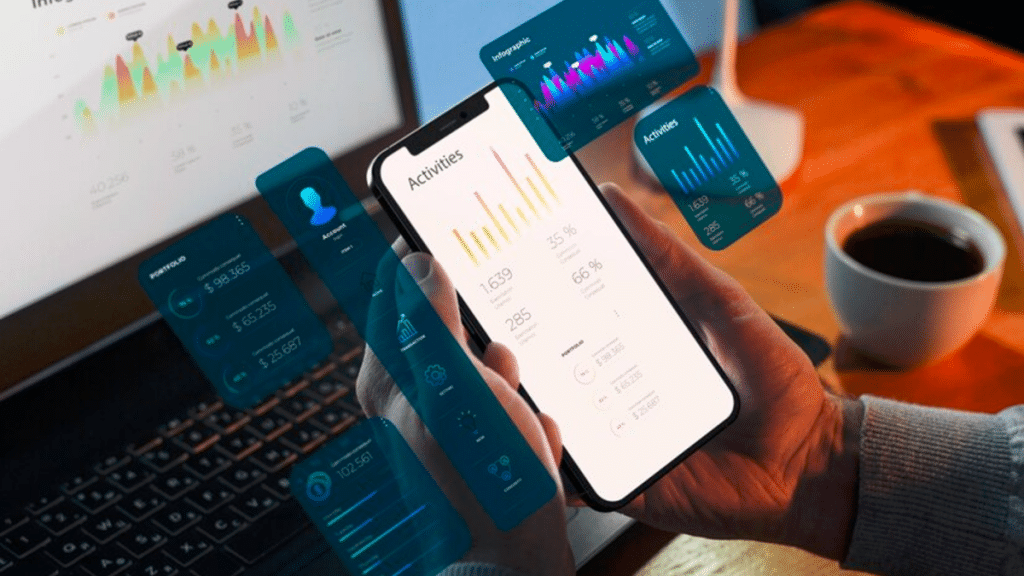The Internet of Things (IoT) is transforming the way devices interact and operate, creating connected ecosystems that bring greater convenience and efficiency to our everyday lives. A vital component of this interconnected world is the digital wallet, which facilitates seamless and secure transactions within the IoT ecosystem. As industries such as finance, retail, and transportation adopt IoT, digital wallets play a significant role in enabling transactions across connected devices. For businesses like a crypto prop trading firm, digital wallets and IoT provide enhanced opportunities for secure transactions and seamless data flows, creating a robust environment for automated trading and financial services.
Understanding IoT and Digital Wallets
The IoT ecosystem refers to a network of devices such as smartphones, wearables, vehicles, and even home appliances that connect and communicate over the internet. These devices generate and share data, providing an efficient way to streamline various processes. Digital wallets, which store payment and identification information securely, have become integral in these ecosystems, supporting transactions across multiple devices.
Digital wallets are evolving to work seamlessly within the IoT ecosystem, enabling transactions without requiring users to physically intervene. This advancement is particularly relevant to crypto prop trading firms that benefit from the automation capabilities offered by IoT. For example, trading systems can utilize IoT to monitor and process trades, while digital wallets manage fund transfers, all without manual interaction.
Digital Wallets in Connected Ecosystems
One of the main benefits of digital wallets in an IoT ecosystem is their ability to facilitate transactions and exchange data between connected devices. This capability is invaluable for retail, supply chain, and financial industries that rely on quick, seamless transactions. With a digital wallet, users can make payments from any IoT-enabled device, be it a smartwatch, smart car, or home assistant.
For crypto prop trading firms, digital wallets allow quick fund transfers and secure storage of assets in trading applications. By integrating with IoT, trading platforms can send and receive real-time data across devices, improving the efficiency of trading decisions and making financial processes faster and more secure.
Enhancing Security with IoT and Digital Wallets
Security is one of the biggest concerns within IoT due to the sheer number of devices involved and the sensitive data exchanged between them. Digital wallets contribute significantly to the security of IoT ecosystems through advanced encryption and multi-factor authentication, ensuring transactions are protected. Since digital wallets store payment information securely and support tokenized transactions, they can reduce the risk of fraud or unauthorized access to funds.
For crypto prop trading firms, securing funds and data is essential. Digital wallets integrated with IoT-enabled trading systems can provide secure, real-time access to funds, protecting against cyber threats and unauthorized transactions. By leveraging the security features of digital wallets, firms can build greater trust with clients and ensure safe transactions.
Enabling Seamless Transactions
Digital wallets offer speed and efficiency in transactions, an essential feature in the IoT ecosystem where automated payments are often required. For example, in a smart home environment, an IoT-enabled refrigerator might automatically order groceries when supplies run low, making payments through a linked digital wallet. This seamless transaction process is powered by IoT, making everyday interactions more convenient.
For crypto prop trading firms, speed is equally critical. With digital wallets integrated into IoT systems, firms can automate fund transfers and transactions, allowing trading strategies to be executed swiftly and reducing latency. This efficiency can be a competitive advantage in high-stakes trading, where split-second decisions can impact profitability.
Data Collection and Personalization
Digital wallets within IoT ecosystems collect and analyze data from connected devices, providing valuable insights into user behavior. This data can help businesses personalize services, offer targeted promotions, and improve customer engagement. For instance, retailers can analyze purchasing patterns and suggest relevant products to customers, enhancing the user experience.
Similarly, crypto prop trading firms can leverage this data to gain insights into client trading behaviors and preferences. By analyzing the data generated by digital wallets, trading platforms can create customized investment suggestions, personalized financial reports, and more. This personalization not only improves user experience but also enhances customer loyalty.
Future Implications: AI and Automation in IoT
As AI and machine learning continue to evolve, digital wallets and IoT will become even more integrated, providing more powerful capabilities for automation and personalization. For instance, AI-driven IoT devices could learn user habits and preferences, enabling digital wallets to anticipate needs and make proactive transactions. This level of automation could redefine how we interact with financial and trading platforms, making processes even more efficient.
For crypto prop trading firms, AI-driven automation will allow trading systems to adapt to market changes dynamically. AI can analyze data from IoT-enabled devices to provide real-time trading insights and automatic execution. When integrated with digital wallets, such systems can initiate trades, secure funds, and manage accounts autonomously, reducing manual intervention and enhancing efficiency.
Conclusion
Digital wallets play a pivotal role in enhancing IoT ecosystems, enabling seamless and secure transactions across connected devices. For businesses, including crypto prop trading firms, the integration of digital wallets and IoT systems presents numerous advantages, from enhanced security and data-driven personalization to faster and more efficient transactions. As IoT technology continues to advance, the synergy between digital wallets and IoT will become even more integral to industries, transforming financial processes and improving user experience.
With the growing adoption of digital wallets within IoT ecosystems, businesses can expect an increasingly connected and streamlined financial landscape. This transformation not only benefits consumers by providing convenience but also empowers firms with tools to enhance security, efficiency, and customer engagement in a rapidly evolving digital world.
